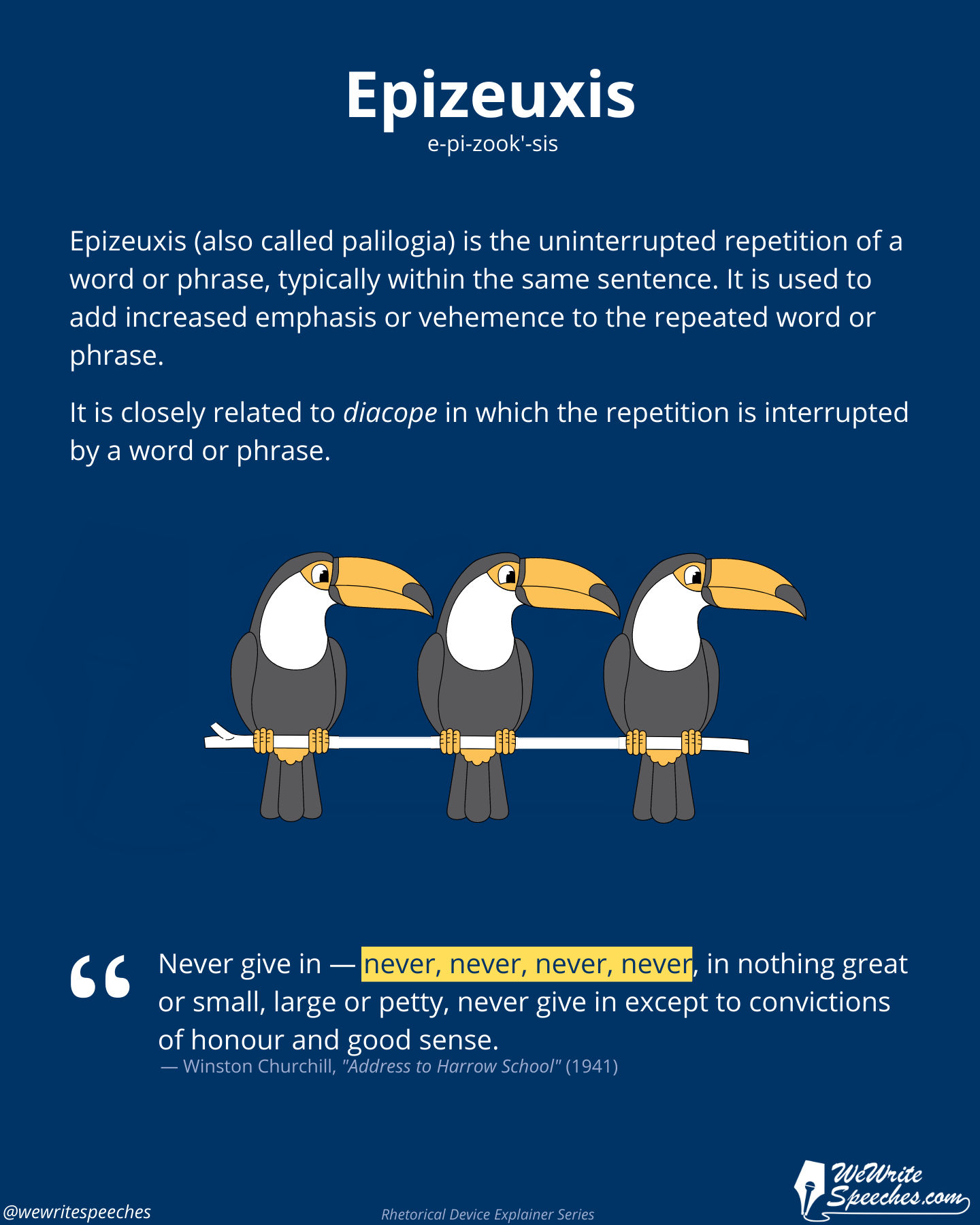Rhetorical Device: Epizeuxis
Epizeuxis is a rhetorical device that is used to emphasize a point or idea by repeating the same word or phrase multiple times in succession. This technique is effective in conveying the power and intensity of a particular thought or emotion. It can be used to draw attention to a certain point, drive a point home, and add emphasis to a message.
Epizeuxis, which is also called palilogia, is useful because it allows the speaker to focus on and emphasize a particular point. It can also be used to create a sense of urgency and intensity to a message, making it more effective and engaging. Additionally, epizeuxis can be used to add a rhythm to a speech or piece of writing, making it stand out and draw attention.
Ordinary people use this technique all the time. For example, if a parent is getting exasperated because a child is refusing to go to bed, they are likely to use epizeuxis to add a sense of urgency and intensity to their point by firmly saying “go to bed, go to bed, go to bed!” Epizeuxis can also be used to draw attention to a point in a speech, for example, if they wanted to draw attention to the importance of recycling, they could use epizeuxis by saying “recycle, recycle, recycle.”
Epizeuxis is closely related to diacope which occurs when the repetition is interrupted by a word or phrase.

Examples
They think that they have pacified Ireland. They think that they have purchased half of us and intimidated the other half. They think that they have foreseen everything, think that they have provided against everything; but the fools, the fools, the fools! — they have left us our Fenian dead, and while Ireland holds these graves, Ireland unfree shall never be at peace. Padraig Pearse, "Jeremiah O’Donovan Rossa’s Funeral" (1 August 1915)
Never give in — never, never, never, never, in nothing great or small, large or petty, never give in except to convictions of honour and good sense. Winston Churchill, "Address to Harrow School" (1941)
So, they sent me to a salon where they gave me a perm, and after a few days all my hair fell out and I had to shave my head. And then they really didn't like the way I looked -- ‘cause now I am black and bald and sitting on TV. Not a pretty picture. But even worse than being bald, I really hated, hated, hated being sent to report on other people's tragedies as a part of my daily duty, knowing that I was just expected to observe, when everything in my instinct told me that I should be doing something. I should be lending a hand. Oprah Winfrey, "Stanford Commencement Address" (15 June 2008)
